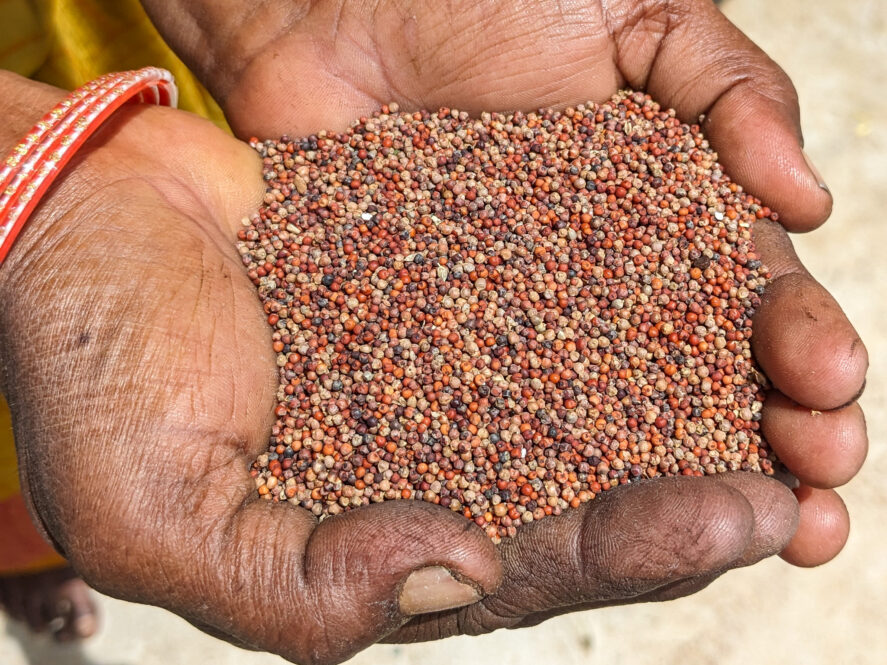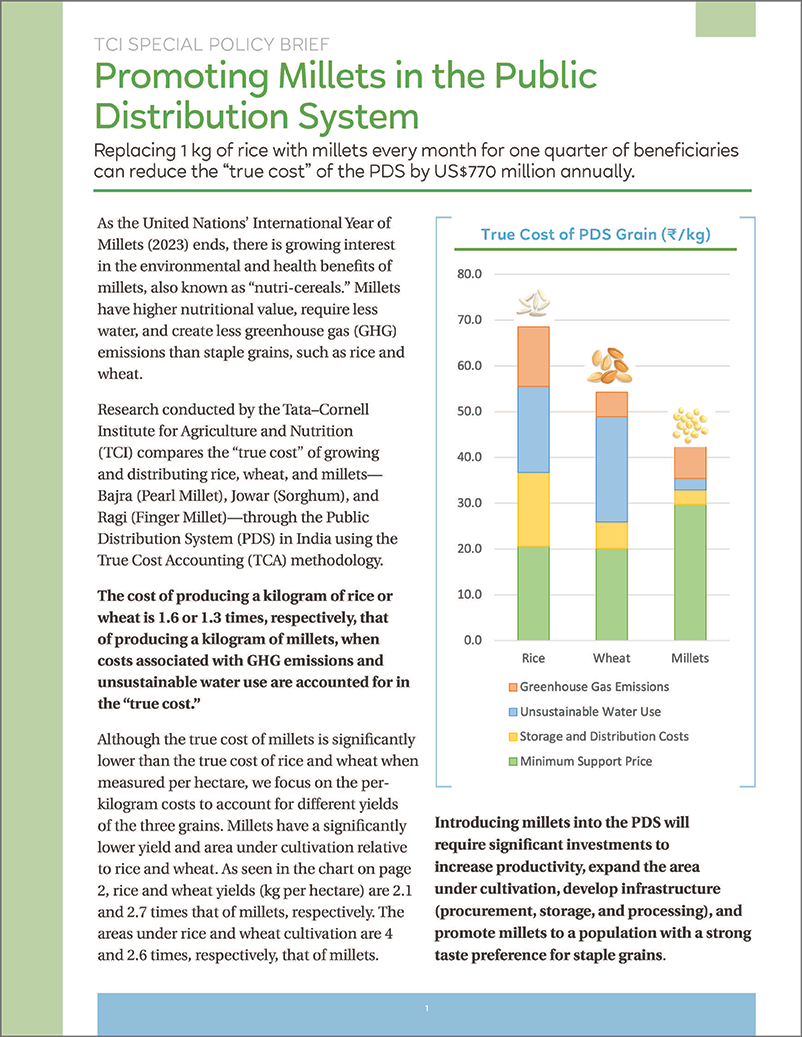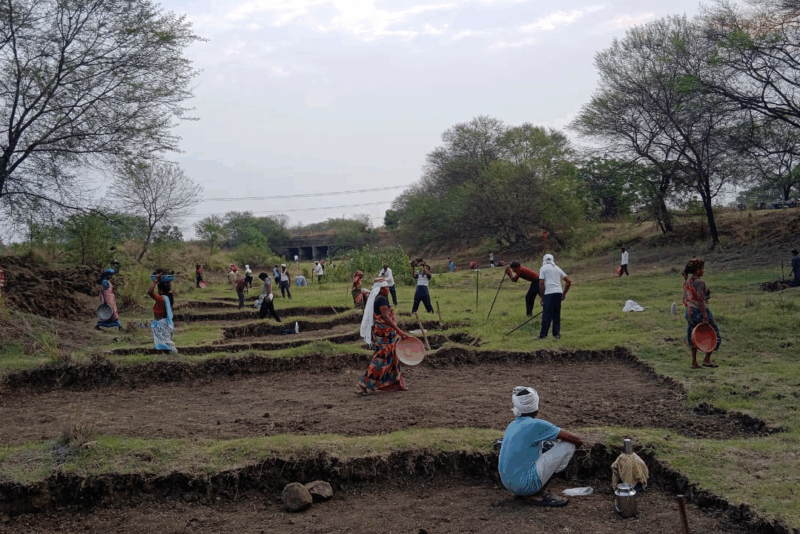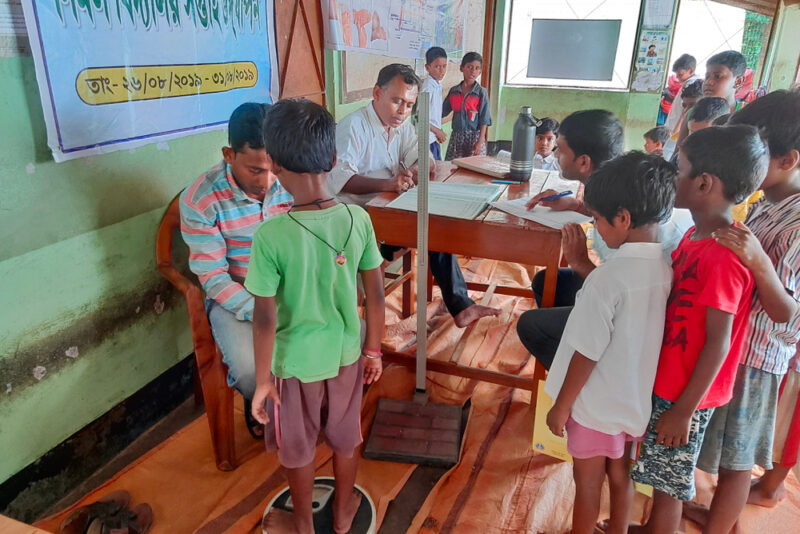Millets Make Sense for India’s PDS

Replacing some of the rice provided through India’s Public Distribution System (PDS) could lower the costs associated with the subsidized food program by $770 million, according to new research from the Tata-Cornell Institute for Agriculture and Nutrition (TCI).
In a policy brief published on October 30, TCI details how the replacement of 1 kg of rice with 1 kg of millets for a quarter of the PDS’s roughly 800 million beneficiaries would save $770 million in environmental and economic costs.
“Diversifying the PDS food basket to include more millets presents India with a win-win scenario,” TCI Director Prabhu Pingali said. “The savings in both real dollars and environmental costs would reduce the price tag of the PDS, while the provision of nutritious millets could lead to better overall health outcomes for beneficiaries.”

Promoting Millets in the Public Distribution System is available for download.
The policy brief shows that the production of millets is associated with significantly lower greenhouse gas emissions and water use than rice and wheat. When these factors are taken into account, the cost of producing a kilogram of rice and wheat is 1.6 and 1.3 times that of a kilogram of millets. Previous TCI research found that the environmental impact of rice and wheat production adds $5.1 billion in hidden costs to the total cost of the PDS.
Millets also offer greater health benefits compared to rice and wheat, TCI’s research shows. Millets have more iron, a lower glycemic index, and are a rich source of calcium. Adding them to the PDS food basket could help to address India’s high rates of anemia and rising obesity in the country.
In addition to the environmental and health benefits afforded by millets, the policy brief lays out how they could help correct imbalances in the production and procurement of food grain that adds to the cost of the PDS. Currently, rice and wheat production are concentrated in just a handful of northwestern states and the grain must be shipped throughout the country. Because millets are grown mostly in western and central India, where rice production is low, their inclusion in the PDS would allow for a more decentralized procurement regime, reducing acquisition costs by as much as $110 million.
Decentralized procurement could provide economic opportunities to more farmers. “With the inclusion of millets in the PDS basket, smallholder farmers in areas of India that have not benefited economically from PDS procurement would have a tremendous opportunity to improve their livelihoods,” said Raghav Puri, a postdoctoral associate at TCI who authored the policy brief.
“Diversifying the PDS food basket to include more millets presents India with a win-win scenario,” TCI Director Prabhu Pingali said.
The promotion of millets could also help reduce the environmental stresses felt by the northwestern states growing the bulk of rice for the PDS. While farmers in those states benefit from centralized procurement, TCI research shows that they bear the brunt of the environmental impacts associated with the PDS.
TCI’s policy brief was published as part of its True Cost of Food Subsidies in India project, which uses a “true cost accounting” approach to measure the costs and societal impacts that are not counted in the PDS budget to provide policymakers with a clearer picture of the program’s costs, and benefits. True cost accounting provides a holistic assessment of the food system, essentially measuring, valuing, and describing the processes from farm to plate by accounting for all direct and indirect costs and values.
TCI is undertaking the project with financial support from The Rockefeller Foundation. The findings and conclusions shared as part of this project are those of the authors and do not necessarily reflect the positions or policies of The Rockefeller Foundation.
Featured image: A PDS beneficiary shows millets she received from the PDS in Karnataka, India. (Photo by Raghav Puri/TCI)





